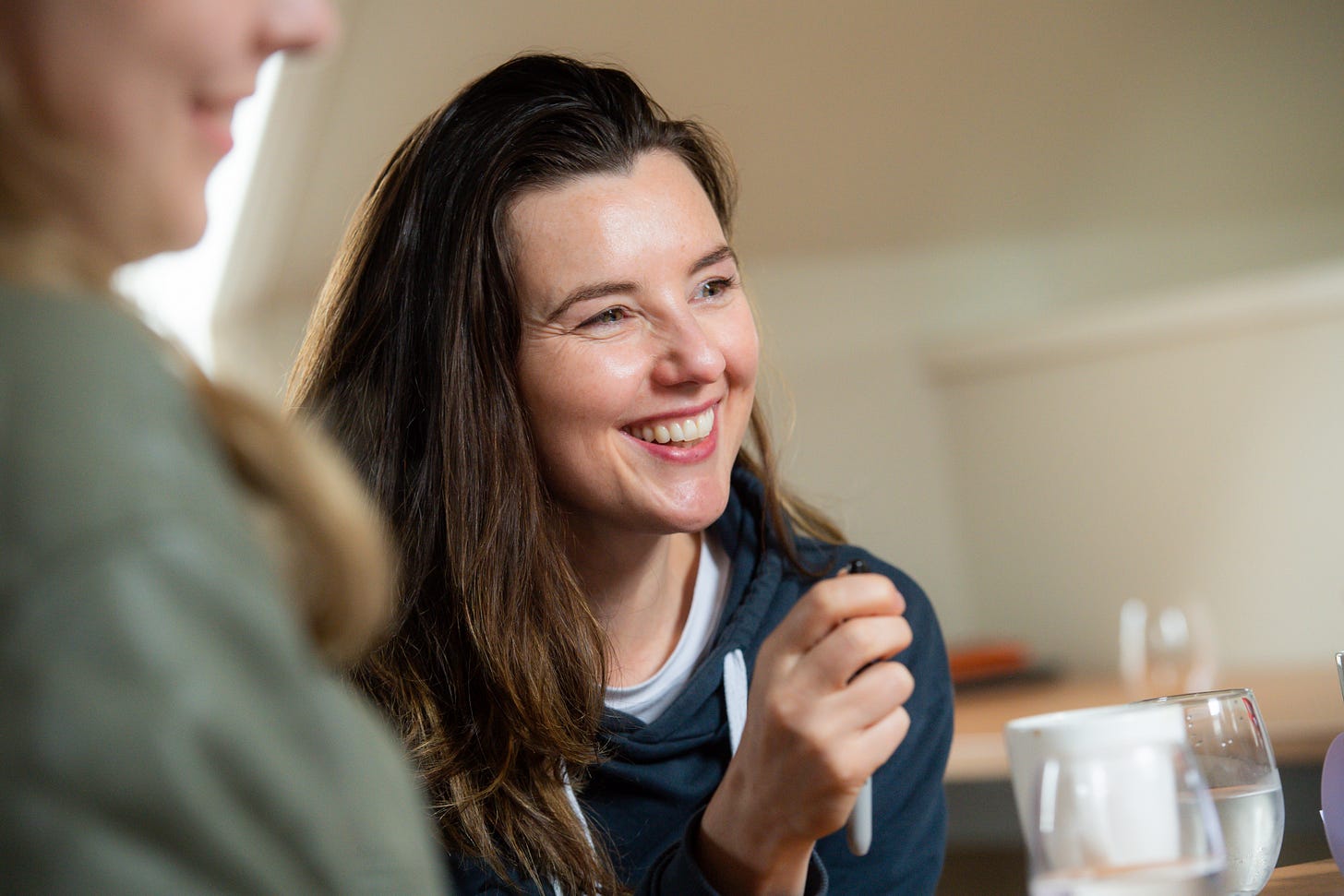How curiosity can help you and your organisation
During tough times, staying curious will help you weather the storm
Hi! 👋 Welcome to The Navigator. A newsletter that helps you have better conversations about design, research and change. I’m Sarah Ronald, and I write this newsletter with the Nile team. If this email was forwarded to you, sign up for it here.
This autumn, I changed how I introduce myself.
I used to introduce myself at conferences and work events by saying, “I’m Sarah Ronald. I founded Nile, a strategic design company”. Now, I say, “I’m a psychologist.”
I haven’t switched careers. I still run a strategic design company. I’ve just reconnected with my home discipline, with why I got into design in the first place: to understand people, their behaviour and motivations.
Saying you’re a psychologist at a conference is a bit like being a teacher at a party. Everyone’s either been through school, or has kids going through it, and so has an opinion to share or a question to ask.
In the same way, business leaders always want to talk about the human behaviours impacting their organisations. The language of people and psychology is shared between nearly all successful leaders, irrespective of their sector or specialisation.
Curiosity is a superpower
My driving goal with The Navigator is the same as Nile’s core mission: to help you discover and design better solutions for people and businesses. I want to help you build the confidence and curiosity to define the challenges you face, and then share the tools to overcome them.
And many of our clients are facing real challenges right now, working hard to chart a course through turbulent headwinds. But in all my conversations this year, one thing seems clear: resilient leaders all share that same curiosity that got me into design in the first place.
I’m reminded of one of Nile’s CoFoundry entrepreneurs, Nick Cousins.
Nick wanted to do something about the bureaucracy of the bereavement process. Probate is a complex, often manual, process that causes undue stress for grieving family members. Nick was curious enough to ask, “Does it have to be like this?”
When his first business idea didn’t resonate with the market, you might forgive him for being disheartened. But Nick harnessed his curiosity, and asked ‘why?’. We worked with him through multiple prototypes, testing and listening to the market, until we arrived at the right solution. Exizent was born.
Nick was successful because he never fell in love with his ideas. Instead, driven by his curiosity, he focused on the question and worked with our design and research team to experiment, explore and iterate solutions, sensing and responding to the data.
The relationships between curiosity and strong leadership is borne out in the research. I recently came across BetterUp’s research on Future Minded Leaders. In it, they show that curious people, equipped with a strategic design mindset and good foresight habits, made more resilient, optimistic leaders, who ran happier, higher performance teams.
So whether you share my deep curiosity about people, Neil’s fascination with possible futures as Nile’s practice director, or Alexa’s passion for discovering new truths as our Head of Research, hold tight to that spark of curiosity. It might just be the thing that helps each of us weather the storms to come.
Stay tuned
Maybe your company has a gnarly problem that needs solving. Maybe you think research, design or foresight might hold the solution, but you don’t know how to raise it with your leadership team. Or maybe you’re just curious about what we do in Nile.
Whichever it is, this newsletter is for you. And I want this to be a conversation; you can reply directly to this email, or comment below to chat with me and our readers.
I hope you’ll join me as we navigate our curiosity together.
– Sarah Ronald
Nile News
Being a changemaker is lonely. Don’t do it alone. 15 years of working on the frontlines of design and change have taught us some hard truths about transforming organisations. Luke McKinney, Nile’s head of consulting, shares four lessons every changemaker needs to know
Business briefing: vulnerable customers: If you’re in financial services, you need to start embedding inclusive design across you business ahead of the FCA’s New Consumer Duty legislation. Read our primer on inclusive design, why it’s relevant, and where to start
Links We Loved
People are noisy and your feet will hurt. Nile’s Louise Mushet reflects on the return of in-person facilitation
TheyDo. An interesting new journey mapping tool we’re experimenting with this week. During our last in-house work share at Nile we talked about better ways to feed research and insight into build processes. TheyDo may be a relatively elegant new solution for that.
The Doctrine of Placements. After our Design Book Club this week (Org Design for Design Orgs), Calum’s been reading up on the levels of design, and how we consciously or unconsciously make design decisions through different lenses. ⚠️ Health and Safety Warning: this stuff is basically design philosophy; pretty deep and abstract, but worth reading if you’re into it.
An inclusive design reading list from MadeTech’s Benjy Stanton, found through his recent tweet. As we work to build a design and research practice that’s genuinely inclusive, our team is building their own reading list. This is a great start!
Get in touch
Nile is here to help find better solutions for people and businesses. We want to hear from you. Reply directly to this email, get in touch here or reach out on Twitter. And forward this email to someone you think will enjoy it.



